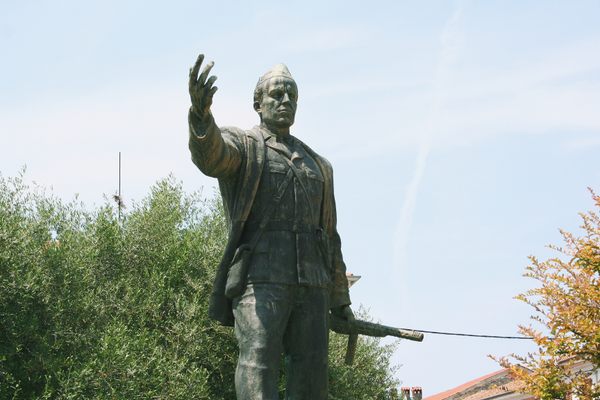Born in 1914 near Poreč, Croatia, in the humble village of Rakovic, he is one of Croatia’s famous liberators of Istria. Joakim Rakovac was the main organiser of the “People’s Liberation Struggle” in Istria: a protector, a freedom fighter, and a hero to the Croatian people.
In his adolescence, through Italianization, he grew up in an Italian primary school. Italianization was the forced cultural and ethnic assimilation towards natives in former Austro-Hungarian territories that transferred to Italy after the First World War. Many bans were imposed, often favouring the Italian language, despite this, Rakovac’s parents encouraged him to learn and read books in Croatian, his native language. Sadly, his father, Ivan, faced persecution by the fascists and met his demise in a Nazi concentration camp in Dachau.
Despite Rakovac’s service in the Italian army during the Second World War and participation in the invasion of Yugoslavia, his political loyalty came under scrutiny. He returned as early as 1942 to Istria. However, it is not concrete if he deserted or was deposed. Once he returned, the Croatian anti-fascist movement began, and he established close cooperation with Jože Šuran, another famous Croatian freedom fighter. In 1942, communist activist Ante Drndić Stip, Šuran and Rakovac held a meeting for thirty people in a house in Rakovic and discussed the possibility of fighting the fascist movement. Thus began the NOC, the National Liberation Committee. By August 1943, Rakovac would become the president of the NOC of Istria.
In the same year, he led the disarmament of garrisons in Cerovlje and nearby Borut, and led a large group of volunteers to the partisans in Gorski Kotar. Even took part in the liberation of Pazin, and succeeded in freeing Poreč with a small group of the partisans. As the chairman of the Provincial People’s Liberation Committee for Istria, he contributed to the state’s withdrawal from Italy, and the unification with Yugoslavian Croatia.
Rakovac was a humble man with his priority to liberate Istria; he worked in the fields, visited Istrian villages, and motivated anti-fascist volunteers to revolt. Although it is not clear if he practised the communist ideology, he was heavily involved in the party and even became a member of the party’s leadership in Istria.
Sadly, his end was abrupt. During an NOC meeting in Korenići, the Germans unexpectedly ambushed Rakovac and his comrades. He was hit by a dum-dum bullet, however, was able to flee to a nearby forest. Some speculate he bled to death, others say the Communist Party targeted him and Istrian party members for not being inline. During this time, the new Yugoslav government cut ties with the so-called Istrian “populists”. Thus many people were unfortunately removed, persecuted, and often abused. Because of strained relations, they have not identified Rakovac’s killers.
In honour of Rakovac, and his monumental work in liberating Istria, the people of Poreč named a square after him with a memorial. Currently, a statue has been erected under which he is buried, immortalising him. It is a historic reminder of his tireless work, commitment to equality, and his legendary status.

